JPoint 2019: free live streaming, party and more
On April 5-6, that is already this weekend, JPoint 2019 will be held - an international Java conference for experienced Java developers.
If you could not participate, live or online, then we have a surprise: free broadcast of the first hall. More precisely, the first day and the first room + keynote of the first day. About why bother watching the broadcast, we have a separate post .
So on April 5, you will need to wake up at 9:30 in the morning (Moscow time) and follow the link under the cut. Under the cut, we will discuss what is there at the conference, which is not broadcast.

Where to get the broadcast
The broadcast page is waiting for this red button-link:
A video player and a program of the first room are available. The player will come to life only on the morning of April 5th, now it shows nothing.
Reports
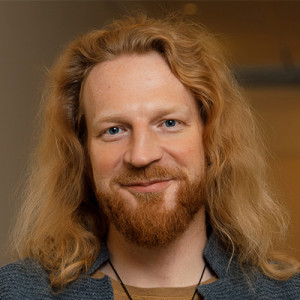 It all starts with the keynote of Anton Keks “The world needs full-stack craftsmen” about the fact that a real master is an order of magnitude more efficient than a highly specialized developer: he not only writes code, but also solves problems. Anton is one of the founders of Codeborne, a company that actually uses extreme programming principles such as pair programming.
It all starts with the keynote of Anton Keks “The world needs full-stack craftsmen” about the fact that a real master is an order of magnitude more efficient than a highly specialized developer: he not only writes code, but also solves problems. Anton is one of the founders of Codeborne, a company that actually uses extreme programming principles such as pair programming.
 The second report is from Yegor Bugaenko ( yegor256 ). Yegor is a person for whom we once came up with a special designation in the program, meaning hot fried questions. This time he will talk about a more calm, but no less important topic: in the report “Testing miscalculations” he will undertake to compare several existing methods, arrange their analysis and performance evaluation from a practical point of view.
The second report is from Yegor Bugaenko ( yegor256 ). Yegor is a person for whom we once came up with a special designation in the program, meaning hot fried questions. This time he will talk about a more calm, but no less important topic: in the report “Testing miscalculations” he will undertake to compare several existing methods, arrange their analysis and performance evaluation from a practical point of view.
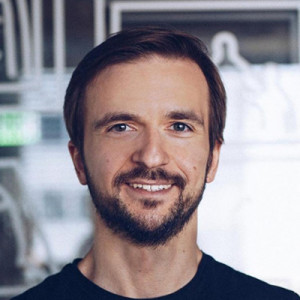 In the third talk, Reactive programming: lessons , Tomasz Nurkiewicz talks about how to determine if reactivism is your chance for a brighter future, or vice versa, a short one-way trip. He is also a Java Champion and one of the best bloggers on Dzone. There have been quite a few title holders at JPoint, like Java Champion, but nonetheless.
In the third talk, Reactive programming: lessons , Tomasz Nurkiewicz talks about how to determine if reactivism is your chance for a brighter future, or vice versa, a short one-way trip. He is also a Java Champion and one of the best bloggers on Dzone. There have been quite a few title holders at JPoint, like Java Champion, but nonetheless.
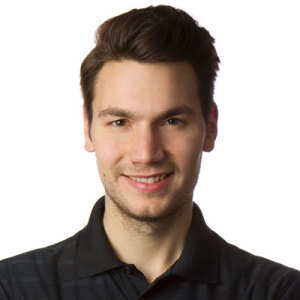 By looking at the topic “Bulletproof Java Enterprise applications for the hard production life”, you can accurately guess the author. Sebastian - Lead Java Developer Advocate at IBM, he talks a lot about how to live with JavaEE happily and efficiently, and is really involved in development, improving our lives. With Sebastian Dashner, we recently did an interview on Habr. Using JavaEE and MicroProfile? That way. Do not use - listening also will not hurt.
By looking at the topic “Bulletproof Java Enterprise applications for the hard production life”, you can accurately guess the author. Sebastian - Lead Java Developer Advocate at IBM, he talks a lot about how to live with JavaEE happily and efficiently, and is really involved in development, improving our lives. With Sebastian Dashner, we recently did an interview on Habr. Using JavaEE and MicroProfile? That way. Do not use - listening also will not hurt.
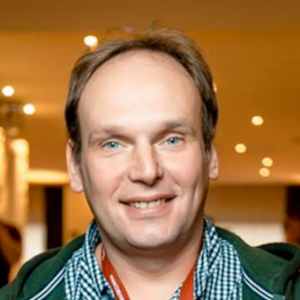 The next report, “We are the Spring Boot, and we are growing stronger: the unbearable lightness of the AOT compilation of Spring applications” by Nikita Lipsky ( pjBooms ) plunges us into the abyss ahead of time compilation. Recently, the AOT theme has become very popular, but how can it be combined with a world of dynamic frameworks like Spring? Someone even thinks that this is impossible. But nothing is impossible for Nikita, one of the initiators of the Excelsior JET project, the most famous virtual Java machine, where AOT "just works." And by the way, with him, too, there is an interview on Habré .
The next report, “We are the Spring Boot, and we are growing stronger: the unbearable lightness of the AOT compilation of Spring applications” by Nikita Lipsky ( pjBooms ) plunges us into the abyss ahead of time compilation. Recently, the AOT theme has become very popular, but how can it be combined with a world of dynamic frameworks like Spring? Someone even thinks that this is impossible. But nothing is impossible for Nikita, one of the initiators of the Excelsior JET project, the most famous virtual Java machine, where AOT "just works." And by the way, with him, too, there is an interview on Habré .
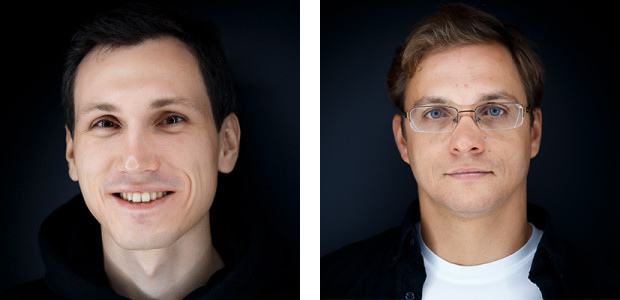 And the broadcast ends with “Reactive or non-reactive, that's the question” - a report by Kirill Tolkachev ( tolkkv ) and Evgeny Borisov ( EvgenyBorisov ). They will take some kind of application and try to refactor it in a reactive style, revealing the features of things like Spring Web Reactive Framework. It sounds very simple and straightforward, but as we know, their reports are among the best in terms of ratings, attendance and elaboration. I recommend taking a look at the previous megadata “Boot yourself, Spring is coming” (in two parts: one , two) Is one of the few for which two time slots have been reserved in a row. There are both video and text transcripts on the links, but I strongly advise you to watch the video, because the way of presentation matters.
And the broadcast ends with “Reactive or non-reactive, that's the question” - a report by Kirill Tolkachev ( tolkkv ) and Evgeny Borisov ( EvgenyBorisov ). They will take some kind of application and try to refactor it in a reactive style, revealing the features of things like Spring Web Reactive Framework. It sounds very simple and straightforward, but as we know, their reports are among the best in terms of ratings, attendance and elaboration. I recommend taking a look at the previous megadata “Boot yourself, Spring is coming” (in two parts: one , two) Is one of the few for which two time slots have been reserved in a row. There are both video and text transcripts on the links, but I strongly advise you to watch the video, because the way of presentation matters.
Total: Full stack, Java Enterprise, Reactive, Spring, AOT and even a report from Egor (not about OOP). That's all it takes to have a great Friday.
If you want to get access to all the reports in general (not only to the first room) on Friday and Saturday, you can purchase an Online ticket . In addition, so you will have all the videos of what happened.
Not everything is available in broadcast
At the time of publication of the article, you have two more days to agree on a ticket with the employer and get any of the following:
Discussion areas
After each report, the speaker is sent to a dedicated discussion area, where you can chat with him and ask your questions. Formally, this can be done between reports. Although the speakers are not obliged, they usually stay much longer - for example, for the duration of the next report. Sometimes it makes sense to skip the report from the main program (if you bought a ticket, you will still have entries after filling out the feedback) and spend it on focused communication with an important expert.
Four BOF Sessions
BOF is now a traditional format at our conferences. Something like a round table or discussion group, in which everyone can participate. This format historically goes back to the first Internet Engineering Task Force (IETF) informal discussion groups . There is no division by speaker and participant: everyone participates on an equal footing.
At the moment, as many as four topics are planned : microservices, reactivity, performance, and all kinds of JDK builds.
Exhibition area
In addition to discussion areas during the break, you can visit the exhibition area. There are several main activities:
- The exhibition is the stand area of the partner companies of the conference. You can learn about interesting projects, technologies and teamwork of leaders in the IT industry. This is the place where you and the company can find each other. Please note that there will be representatives of companies that you will not meet face to face live every day (for example, Amazon).
- Demo Stage is a dedicated stage for sponsors and partners, where companies present their reports, share practical experience and summarize the draws. The program can be viewed on the site, if you go to the section with the program and set the Demo Stage switch to the appropriate position.
Podcasts and Communities
JPoint is the largest Java conference in Russia, and it is only logical that the whole color of Java communities and podcasts appears on it. At a minimum, there will be Andrey Kogun ( AKogun47 ) from JUG.MSK, from Debriefing will be Anton Arkhipov, Kirill Tolkachev ( tolkkv ), Alexey Abashev, from JUG.ru it will sometimes be possible to intercept me ( olegchir ), and so on. And of course, we will conduct the interview not only with Zhenya ( phillennium ), but also Anton Chernousov, better known as golodnyj .
Beer and Music Party
In parallel with the BOFs, the party starts at the end of the first day. Drinks, snacks, music - all at once. You can chat in an informal setting and discuss everything in the world. You can move from the bof to the party. You can move from the party to the bof.
Brain slaughterhouse
The Brain Slaughterhouse is a bar and quiz of questions and answers. More than 200 cities in 16 countries play the Brain Slaughterhouse! To participate, you need only ingenuity and quick wit. Questions are selected so that all participants feel excitement and self-confidence. In simple words - you assemble a team of friends and colleagues, come to a party and have a great time.
Next steps
- If you go to the free broadcast: you need to follow the link on Friday, April 5th. The broadcast will begin at about 9:30 am Moscow time.
- If you want to access all the reports and recordings after the conference: you need to purchase an Online ticket .
- If you change your mind and go live: there are a couple more days to confirm this with the employer or to purchase a personal ticket, all possible options are available here .

